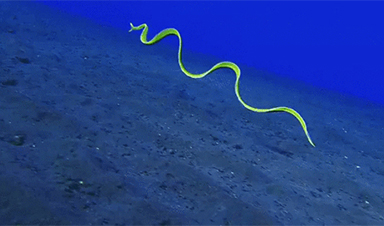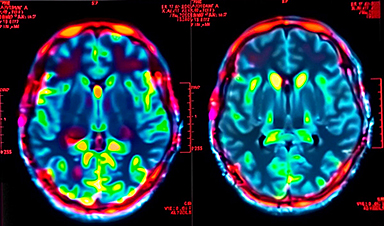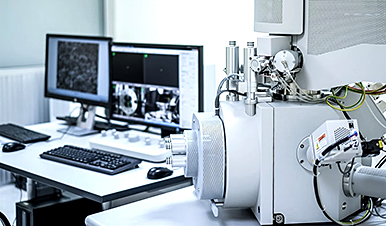Physicist Seth Fraden is developing a new generation of machines modeled on living creatures. His latest invention might one day treat disease by swimming its way through our blood.
As a kid, physicist Seth Fraden loved the movie “Fantastic Voyage,” about a microscopic submarine traveling through a human bloodstream. Almost 10 years ago, Fraden began a quest to create a robotic eel he could send on a similar journey, though it wouldn’t be for entertainment. The eel would be designed to deliver a drug to cells or genes. And, to capture the flexibility of the real sea creature, it would take the form of a gel that could glide through water.
Fraden recently announced he’d achieved the first couple of steps toward realizing his vision. In the journal Lab on a Chip, he reported that he and his team had created a model of a network of neurons using chemicals and microscopic containers. It’s this network that is primarily responsible for the eel’s trademark zigzag swimming motion.
Fraden next plans to embed his neural network in a gel. If everything goes as planned, the gel will actually move the same way an eel does while swimming.
The robotic eel is part of a larger effort by Fraden to build machines made from chemicals and other synthetic materials that behave like living organisms. “Animating inanimate matter” is how he describes it.
He’s not bringing inorganic matter to life. He’s building devices that act a lot like aspects and features of living creatures — clothing that mends itself using the same process our cells use to close a wound, for example, or nanobots that swim like fish through water pipes, carrying materials to repair pipe damage. Fraden’s artificial neural network is just the beginning.
Image Credit: BraneisNow
News This Week
Does COVID increase the risk of Alzheimer’s disease?
Scientists discover that even mild COVID-19 can alter brain proteins linked to Alzheimer’s disease, potentially increasing dementia risk—raising urgent public health concerns. A recent study published in the journal Nature Medicine investigated whether both mild and [...]
New MRI Study Reveals How Cannabis Alters Brain Activity and Weakens Memory
A massive new study sheds light on how cannabis affects the brain, particularly during cognitive tasks. Researchers analyzed over 1,000 young adults and found that both heavy lifetime use and recent cannabis consumption significantly reduced brain [...]
How to Assess Nanotoxicity: Key Methods and Protocols
With their high surface area and enhanced physicochemical properties, nanomaterials play a critical role in drug delivery, consumer products, and environmental technologies. However, their nanoscale dimensions enable interactions with cellular components in complex and [...]
Nanotech drug delivery shows lasting benefits, reducing need for repeat surgeries
A nanotechnology-based drug delivery system developed at UVA Health to save patients from repeated surgeries has proved to have unexpectedly long-lasting benefits in lab tests – a promising sign for its potential to help human patients. [...]
Scientists Just Found DNA’s Building Blocks in Asteroid Bennu – Could This Explain Life’s Origins?
Japanese scientists detected all five nucleobases — building blocks of DNA and RNA — in samples returned from asteroid Bennu by NASA’s OSIRIS-REx mission. NASA’s OSIRIS-REx mission brought back 121.6 grams of asteroid Bennu, unveiling nitrogen-rich organic matter, including DNA’s essential [...]
AI-Designed Proteins – Unlike Any Found in Nature – Revolutionize Snakebite Treatment
Scientists have pioneered a groundbreaking method to combat snake venom using newly designed proteins, offering hope for more effective, accessible, and affordable antivenom solutions. By utilizing advanced computational techniques and deep learning, this innovative [...]
New nanosystem offers hope for improved diagnosis and treatment of tongue cancer
A pioneering study has unveiled the Au-HN-1 nanosystem, a cutting-edge approach that promises to transform the diagnosis and treatment of tongue squamous cell carcinoma (TSCC). By harnessing gold nanoparticles coupled with the HN-1 peptide, [...]
Global Trust in Science Is Stronger Than Expected – What’s Next?
A landmark global survey conducted across 68 countries has found that public trust in scientists remains robust, with significant support for their active involvement in societal and political matters. The study highlights the public’s [...]















Leave A Comment